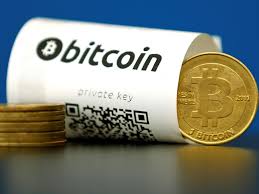bitcoin slump

There’s a major shakeout underway in bitcoin cloud mining, with some firms shutting down or halting payouts to customers, while others are shifting their business models.The fallout is being felt by data center operators who leased space to large mining operations, prompting one provider to sue a bitcoin customer for millions of dollars in unpaid hosting costs.The turmoil is driven by an extended slump in the value of bitcoin and other virtual currencies.After soaring as high as $1,100 in late 2013, the price of bitcoin has plunged, hitting a low of about $225 on Tuesday.This decline has wreaked havoc with cloud mining operations, who lease processing power to users.Many of these companies operate their own warehouse-style computing facilities, but some providers lease data center space from wholesale providers.On Monday, C7 Data Centers filed suit against mining company CoinTerra, which has missed $1.4 million in payments.The suit seeks up to $5.4 million in damages, citing C7’s costs for provisioning power and the balance of CoinTerra’s contract.

CoinTerra disputes the charges and says it has filed a counterclaim.CoinTerra CEO Ravi Iyengar told us the company has defaulted on its debt as a result of C7 shutting down CoinTerra’s infrastructure at its data centers.As a result, the bitcoing miner has halted operations and stopped payouts to its customers.CoinTerra is also a major customer of CenturyLink, which has leased more than 10 megawatts of data center capacity to the mining firm.Its servers at CenturyLink data centers have also been shut down.Bitcoin mining has always been a speculative business, offering a way to mint digital money with high-powered hardware by processing transactions, with financial rewards paid out in virtual currency (hence the “mining” nomenclature).The network is based on a public ledger known as the blockchain, with each transaction verified using cryptography.The returns on mining fluctuate with the price of bitcoin and network activity.As the price of bitcoin has plunged, even industrial-scale mining operations are unable to cover their costs.

On Monday, the second-largest bitcoin mining pool said it was temporarily suspending operations, saying mining had become unprofitable.Another mining company that has leased significant data center space is CloudHashing, now owned by Peernova.Customers have complained that the company is mining fewer coins and that payouts have become erratic.“CloudHashing is very much operational,” said Emmanuel Abiodun, president of Peernova.
litecoin efficiency“We have simply pointed our mining machines to a larger mining pool to increase the block discovery frequency which is a good thing for all customers.
asic bitcoin calculatorThe growth of the bitcoin network made that decision absolutely necessary.
bitcoin farm chickenCustomers will now be paid on a weekly schedule.” Peernova, like other companies in the ecosystem, has been changing its strategy.
bitcoin prices json
In December the company said it had raised $8.6 million in new funding and would use the money to accelerate its development of blockchain-based software products for enterprises.“A large amount of our efforts this year will be delivery of these applications,” Abiodun said.Another firm that has shifted its business focus is GAW Miners, which made a major push into cloud mining last summer.
bitcoin wert in der zukunftThe company recently launched its own virtual currency called Paycoin, and some customers who continue to mine using GAW’s cloud-based “hashlets” say their maintenance fees can exceed the returns from mining.
bitcoin nasil yapilirThe turmoil has been felt most acutely among smaller players in cloud mining.Over the past month, a growing list of companies have either halted their cloud mining operations or curtailed payments to customers, including ZeusHash and PB Mining.

In perhaps the most bizarre development, cloud mining service Hashie suspended operations and temporarily replaced its web site with an “alternate reality game.” The chaos makes the risks of the bitcoin sector stark.As we noted in July, the sector presents a challenge for the data center industry.As demand for bitcoin mining capacity soared in early 2014, some providers leased significant amounts of space and power to bitcoin specialists, while others skipped these deals, wary of the density requirements, economics and potential credit risk.“Some investors don’t want to touch the Bitcoin industry,” data center industry veteran Mark MacAuley, a managing director at RampRate, said at the time.“The risk is outside the profile that’s palatable to some investors.” Credit risk is not a new issue for the data center industry, which was hard-hit by the dot-com bust and the collapse of speculative startups.The wave of dot-com bankruptcies rippled through the colocation sector, leading to the collapse of major players like Exodus Communications, AboveNet, and MCI WorldCom.

As the industry recovered, data center providers tightened their credit standards and limited the scope of their construction projects, seeking to keep the supply of space in line with customer demand.After a lengthy period with few customer default problems, the industry’s appetite for risk has been tested by the bitcoin sector.Click below to continue to page 2 of this storyThe economic prospects for Latin America in 2016 are grim.With political instability in some of the region’s largest economies, as well as a general slump in prices in oil and other commodities, businesses and consumers are facing a depression and, in the case of Venezuela, economic collapse.The crash of the Chinese stock market has severely hurt the economy, as well — China is the No.1 commercial partner for several countries in the region.Many Latin Americans are turning to bitcoin as a solution, and the recent crises seem only to have accelerated adoption.Last year, adoption of the digital currency broke records in Latin America.

Payment processor BitPay reported a 510 percent gain in merchant transactions in mid-2015, but the most notable growth took place toward the end of last year.Latin American merchant transactions finished the year having grown by a staggering 1,747 percent from the beginning of 2015.Other key figures from Brazil’s bitcoin ecosystem showed bitcoin exchange trades surging by 322 percent and wallet adoption growing 461.4 percent.Exchange trading in Mexico grew by 600 percent in 2015.In Latin America, the country most known for bitcoin is Argentina.And while Argentina has had the most bitcoin enthusiasts per capita, that may be starting to change.Brazilians and Venezuelans also have good reasons to adopt bitcoin — bitcoin holders in 2015 enjoyed earnings during 2015 that performed more than 400 percent better than the Venezuelan Bolivar, more than 92 percent over the Brazilian Real, more than 65 percent over the Mexican Peso and more than 41 percent over the Argentine Peso.

The crisis facing Latin American economies did not begin in 2016.Argentina, Venezuela and Brazil ended 2015 with serious economic problems, including huge inflation rates — as high as 275 percent for Venezuela (63 percent for 2014), ~30 percent for Argentina (36.4 percent for 2014) and 10.4 percent for Brazil (6.3 percent for 2014).The problems started in previous years, and administrations are continuing to impact these economies.The International Monetary Fund (IMF) predicts a 720 percent inflation rate for Venezuela during 2016.The Brazilian economy has entered a recession that, according to the IMF projections, will be the longest since 1930-31.Argentina’s Minister of Finance in Argentina predicts a minimum of 25 percent inflation, and analyst projections estimate that 2016 inflation could be as high as 38 percent, with a 30 percent devaluation of the Argentine Peso against the U.S.Latin America stands out as a land of opportunities for bitcoin in 2016.As the crisis deepens in Latin America, some governments are tightening capital controls.

The Brazilian government has announced a new tax over the payments sent out of the country (including remittances, tourism expenses and other services) that increases costs to 25 percent (and up to 33 percent).There are other major problems for businesses and consumers making both cross-border and local payments: settlements can take weeks and cost more than 10 percent.Seven applications for b in America Bitcoin has proven to be a solution for many of the problems caused by inflation and subsequent capital controls.And while workers and merchants have turned to bitcoin first as a hedge against devalued local currencies, the technology is beginning to find a number of practical applications as a payment method.As a universal currency, has allowed consumers to shop and send money internationally.From Apple to Walmart, international businesses that might not accept local payment options from America can use to continue to reach online shoppers in the region.may help tourism weather the current economic crisis.

Because can be used by anyone with an Internet connection, it can reduce foreign exchange costs for both tourists and merchants.Because tourists from America often don’t carry credit cards, may be a way for popular tourist destinations outside the region to reach more customers.companies sending payroll payments to international workers can benefit from faster, simpler payments without the costs and delays of wire transfers.Exxon Mobil employs more than 1,500 people in Argentina, so may offer it and other international oil companies a way to more easily send money to payees in countries.Online marketplaces like OPSkins have already seen massive success using to send payouts to international vendors.Marketplaces like eBay (which moved into the region in 2014) and Amazon may find to be the best solution for payments for buyers and sellers.With capital controls, it has become difficult for businesses to pay money to suppliers and corporate offices outside America.Franchise businesses like McDonald’s and KFC may find to be the ideal way to pay franchise fees and other supply costs in a continuing economic crisis.

Though importers can pay for shipments upon delivery, long delivery periods can expose them to the risk of currency value fluctuations.Multinational corporations with subsidiaries in Argentina can turn to to reduce those costs dramatically.While many Americans do not have access to credit cards, services like Belize’s Advanced Cash offer consumers debit cards and e-wallets that can be used with merchants that accept major credit cards.has offered an affordable way for consumers to top up these accounts without bank transfers.Because top-up payments can be sent from anywhere in the world, they also can be an immediately practical way for consumers to receive remittances from outside the region.The roots of b adoption in America: the mobile revolution While it may seem like an unlikely success, bitcoin‘s growth has a precedent in Latin America’s rapid Internet adoption.While the share of web users in Latin America is still small compared to that of developed countries, the region’s e-commerce volume has climbed to nearly $50 billion (~24 percent year-over-year growth).

The region’s social media users almost quadruple its share of web browser users, showing how important mobile e-commerce and social networks are becoming for the general population.Although bitcoin usage is growing rapidly in Latin America, it still faces several obstacles.Since 2014, Facebook, Twitter and WhatsApp have been the main networks that have benefitted from that growth in Latin America.Latin American users make up 38 percent of WhatsApp’s user base, while Latin American users make up 20 percent of Facebook’s global user base.Argentinians and Brazilians are among the groups that spend more time on social media networks than anyone in the world.As more Latin Americans become used to the freedom and global connection that web technologies like social media provide, bitcoin will continue to be an attractive alternative to payment systems built for a pre-digital world.Governments begin to explore b The election of Argentina’s new President Mauricio Macri represents a political shift in Argentina after 12 years of government by the Kirchner family.

Macri’s government has already shown signs of welcome for bitcoin adoption.Macri is dubbed in Argentina as “President Facebook” because of his social media presence, and it was through his Facebook profile that he talked about his meeting with BitPay investor Sir Richard Branson, naming as one of the most interesting activities of the billionaire.Macri was the mayor of Buenos Aires before he became president, and it was during his term that the city government organized the first Forum in Buenos Aires in July 2015.The city has also endorsed the -friendly Buenos Aires initiative announced in Bank Magazine, stating that “due to our monetary history and because we rapidly adopt alternatives to the Argentine Peso, we play an important role in bitcoin‘s popularity.” The bitcoin buzz in Argentina also hasn’t gone unnoticed by local politicians.It was the country’s youngest mayor Martin Yeza who tweeted that his mid-term agenda will include bitcoin implementation and regulatory approval for the popular ridesharing platform Uber.

Embracing bitcoin would be a big step forward in the path toward the economic freedom objectives of this government, which has already ended the “cepo” capital controls created by the former administration.Macri’s government has also announced the softening of import-export restrictions, among other important liberalization efforts.While it isn’t clear if the Brazilian and Venezuelan governments will respond to bitcoin in the same way, Bitcoin will be front and center in the changes the Argentine government is making to counter the economic crisis.Roadblocks to b adoption Although bitcoin usage is growing rapidly in Latin America, it still faces several obstacles.E-commerce hasn’t yet had the same impact in Latin America as it has had in the larger markets of North America and Europe.While some Latin Americans distrust their own currencies, they’re not all ready to use bitcoin in day-to-day transactions or rely on it as a store of value.Another challenge to adoption is the friction for consumers to buy and sell bitcoin.